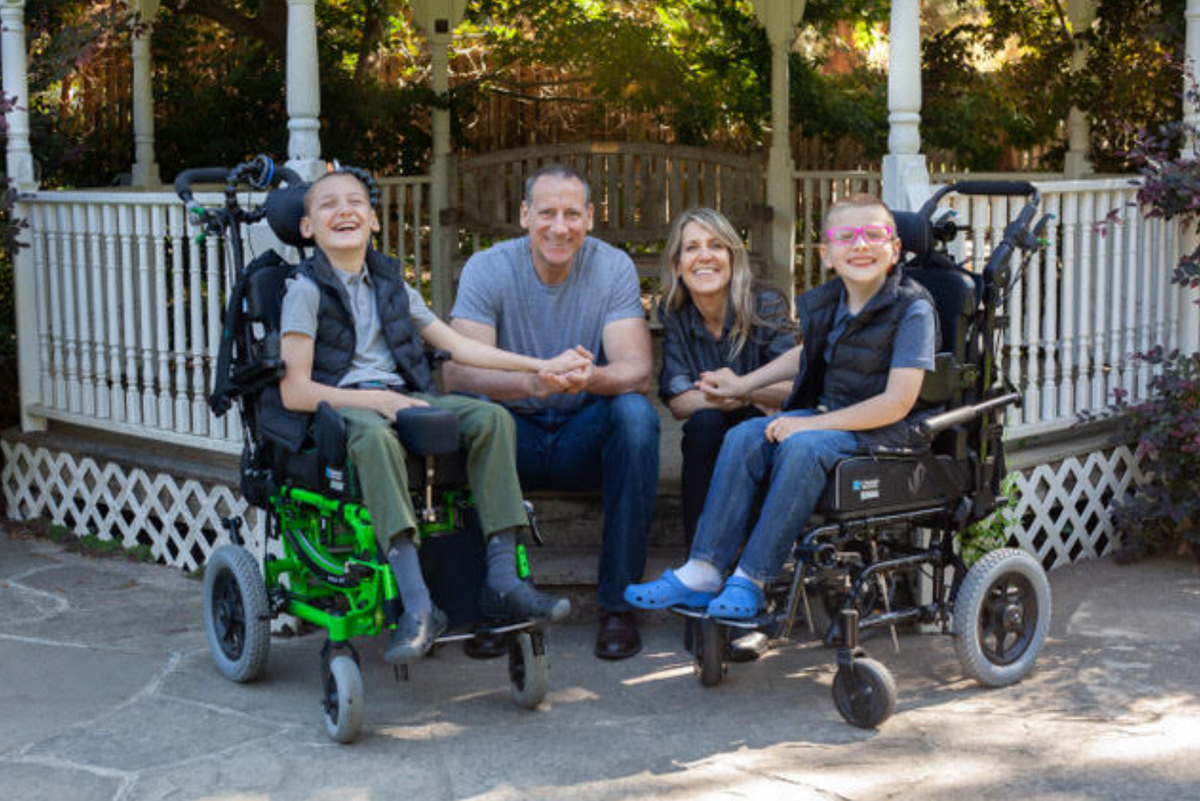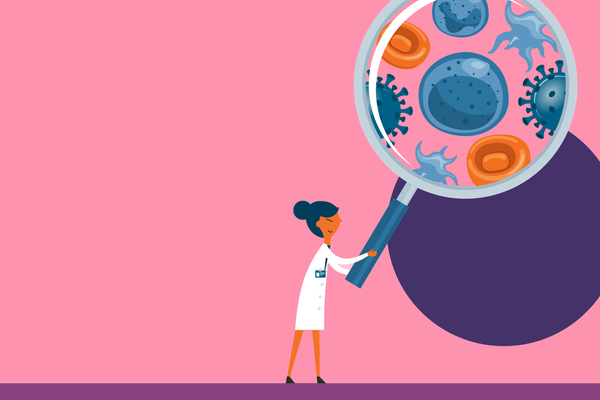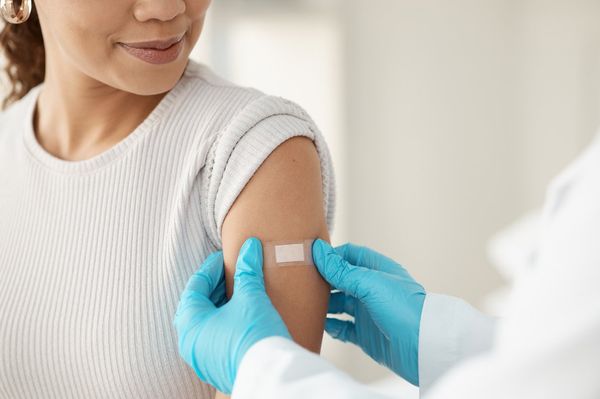As told to Nicole Audrey Spector
Nothing is permanent.
Tomorrow may bring a step back instead of a step forward.
Optimism is the only sane choice.
Celebrate the wins.
These are just a few of the things that I’m continuously learning as the mother of two children with special needs. I’m also always remembering that everything can change in a flash, leaving you in a world that feels strange and upside down.
That’s what happened to me and my family.
It all started when my oldest son, Carson (now 11), was a little over a year old. We noticed that his movements and abilities weren't like other kids his age. After several doctors’ visits, he was initially misdiagnosed with cerebral palsy. His symptoms seemed to get significantly worse after he came down with a mild fever a few months later. It was like his body went on pause and wouldn’t respond to the “play” button.
It was only after several frustrating years of visits to specialists and many rounds of genetic testing that he was later accurately diagnosed with MEPAN syndrome, a genetic neurological disorder. A progressive condition that gets worse over time, MEPAN is so extraordinarily rare that there isn’t even a Wikipedia page for it. In fact, there are only 13 recorded cases in the entire world.
About a year after Carson was born, our second son, Chase (now 10) was born. He also has MEPAN syndrome. Both he and his brother are on the more severe end of the MEPAN spectrum and have serious challenges as a result of the condition. Neither is able to sit, stand or feed himself independently. They both wear diapers, and use a wheelchair and talking devices since they cannot speak.
But Chase and Carson have amazing strengths as well. They’re bright and engaged and resourceful. They’re excellent communicators, and can do more with their customized tablets than most of us could ever dream of doing with our smartphones. And they are cognitively equal with other kids their age.
Plus, they have pretty great parents.
It may sound boastful, but you simply won’t find people better educated on MEPAN syndrome than my husband and me. And we’re committed to shedding more light on the disease, which is why we launched MEPAN Foundation, a nonprofit that works to move scientific research forward to discover treatments that will help our sons and other patients with MEPAN have a better quality of life. This is important because there are currently no approved treatments for MEPAN syndrome.
There’s really nothing we wouldn’t do for our boys, but there is only so much within our power. For some things — like protecting them from certain preventable diseases — we must rely on others.
Both Carson and Chase have received all vaccines available to kids their age, including the vaccines for Covid. But as long as others remain unvaccinated, they’re at risk.
Now, you may say, “But they’re vaxxed. If they do get Covid, how bad could it be?”
To that I say, “Do we really need to find out?”
If you’ll recall, it was only a mild fever that is thought to have triggered the most severe of Carson’s symptoms.
Doctors suspect that given their highly sensitive systems, Carson and Chase are immunocompromised. Personally, I have always worried that, based on their severe disabilities, it would take them longer to get over a virus. My concern has become more intense amid Covid, which has been reported to have long-term effects in children, such as pain, anxiety and depression, among other symptoms.
What would any of these symptoms mean for kids like Carson and Chase, who are already dealing with so many other health issues? And what would a serious illness mean for caregivers like my husband and me, who are working so hard to stay above water as we tend to our boys? Our caregiving shifts are never-ending, and so many nights we pass each other in the hall glassy-eyed and irritable as one of us goes to check to see who fell out of the bed.
Our marriage is strong, but caregiving 24/7 takes its toll on even the deepest and healthiest of bonds.
The efficacy and safety of vaccines shouldn’t be up for debate, and yet conspiracy theories continue to spread like lethal viruses themselves. I’ve come up against them firsthand.
I try not to judge others for their beliefs because I feel that everyone can and should make their own decisions — even if they’re decisions I (or science) disagree with. But choosing to not vaccinate your children against preventable diseases isn’t just a misinformed belief, it’s a potential threat to kids like mine.
It’s true that Covid has not affected kids as badly as it has adults — but it has still affected them. Over 16,000 children have died from Covid. Other diseases are even more unforgiving toward pediatric patients. Measles, for instance, claimed the lives of 207,500 people worldwide in 2019, and most of those who died were children.
It’s hard to get people to change their minds, and I don’t expect to talk many people out of their mindset. But perhaps just one person who doubts vaccines will think of my boys and all the caregivers out there — and then think again.
This resource was created with support from Merck.







